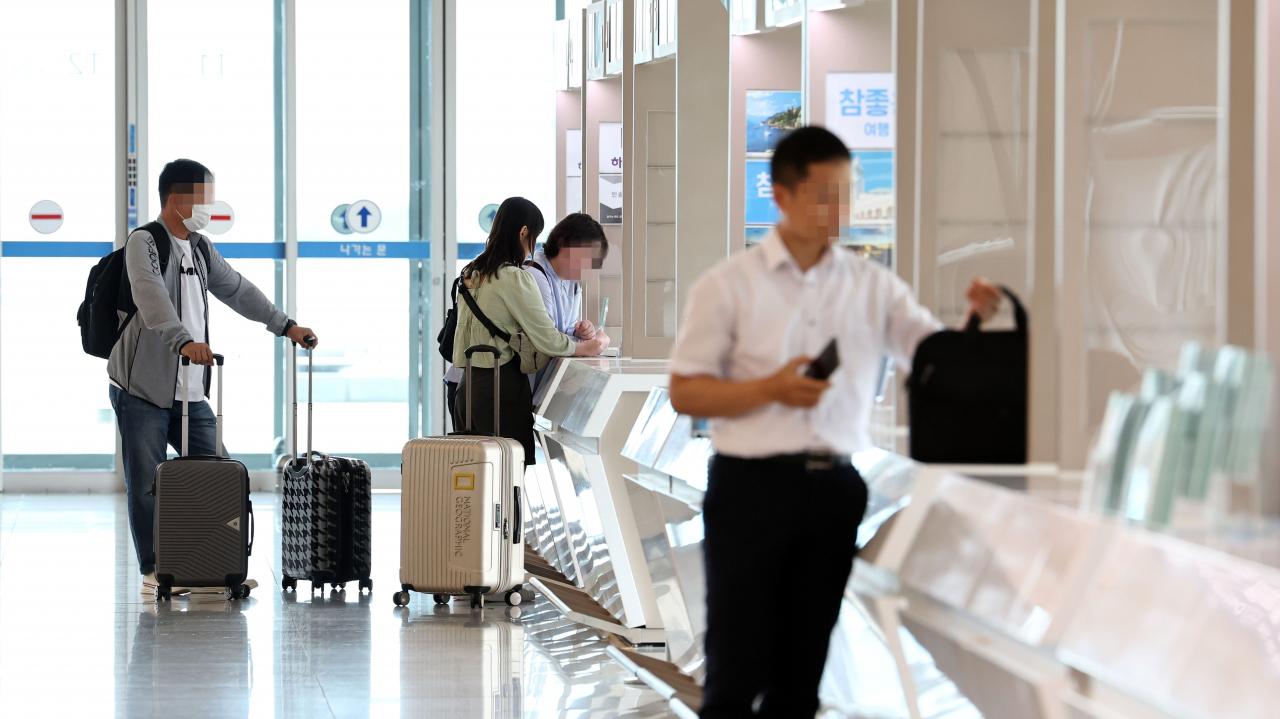 |
Tourists visit travel agency booths at Incheon Airport Terminal 1 on June 21. (Yonhap) |
Travel demand to Hong Kong remains weak among South Korean travelers, data showed Sunday, with a report suggesting anti-China sentiment is still prevailing.
A total of 591,998 passengers used the air routes between Korea and Hong Kong from January to May, according to data from the Ministry of Land, Infrastructure and Transport. The number is only 35.3 percent of the passengers recorded in the same period four years ago, when the pandemic had yet to break loose.
Meanwhile, the number of passengers flying routes between Korea to Thailand recovered to a whopping 84 percent of pre-pandemic levels. Passenger numbers also recovered to 83.3 percent, 73.9 percent and 72.4 percent for Vietnam, Japan and the Philippines, respectively, in the first five months this year.
The slow recovery in travel demand to Hong Kong comes as the city has lost its appeal as a tourist destination following the Beijing-imposed national security law, stated a separate report written by consumer advocacy group Consumer Insight.
The report said Koreans now view Hong Kong “more China-like,” and therefore avoid traveling there.
Of the 3,000 Korean people surveyed in the first quarter this year, the report said, only 22 percent said they were interested in traveling to Hong Kong or Macao.
In reflection of the anti-China sentiment, the recovery rate for travels to China remained at only 16.7 percent, the lowest among Korea’s key travel destinations.
"The 'No Japan' movement has reduced interest in traveling to Japan by a third of a quarter in a short period of time, but demands to Japan rebounded sharply, unveiling that the effect of the boycott was short-lived," stated the report from Consumer Insight.
"However, the case for China is the opposite (and the anti-China sentiment seems likely to stay for the long-run). The anti-China sentiment in Korea has spread significantly (in the country) due to opposition to THAAD, suppression of Hong Kong's pro-democracy movement, the outbreak of COVID-19, hegemony and (China's) closed policies," the report said.






![[Today’s K-pop] Blackpink’s Jennie, Lisa invited to Coachella as solo acts](http://res.heraldm.com/phpwas/restmb_idxmake.php?idx=644&simg=/content/image/2024/11/21/20241121050099_0.jpg)
